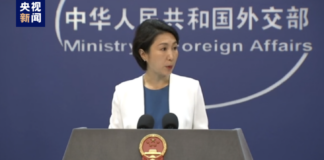KUALA LUMPUR, March 31 — Senior Minister and Minister of International Trade and Industry Datuk Seri Mohamed Azmin Ali will lead a trade and investment mission to South Korea and Japan from April 1-6, 2021.
In a statement today, the Ministry of International Trade and Industry (MITI) said the mission is an important step in enhancing efforts to promote Malaysia as a preferred investment destination as well as a sourcing hub for global businesses.
“The mission will focus on recognising the competitive advantages of both South Korea and Japan in high technology industries, smart manufacturing, digitalisation and cutting-edge industries,” the ministry said.
Mohamed Azmin is scheduled to have bilateral meetings with his counterparts, South Korea’s Trade Minister Yoo Myung-hee in Seoul, and Japan’s Economy, Trade and Industry Minister Kajiyama Hiroshi in Tokyo.
The meetings will discuss bilateral issues and collaboration on initiatives of mutual interest as well as promotion of business linkages to facilitate the growth of bilateral trade and investment.
According to MITI, Mohamed Azmin will take the opportunity to brief his counterparts with regard to Malaysia’s National Investment Aspirations (NIA), the country’s new investment policy to attract quality investments in technology.
The NIA will navigate Malaysia towards becoming a regional investment hub with a view to increasing economic complexity, creating high-value jobs, extending domestic linkages, developing new and existing clusters, and improving inclusivity.
Mohamed Azmin will also elaborate on Malaysia’s ongoing efforts at revitalising its long-term growth by investing in human capital, improving total factor productivity, and boosting competitiveness.
Coupled with the setting up of the National Employment Council, these efforts are aimed at revisiting the investment ecosystem and promote inclusivity by creating high-skilled and high-paying jobs.
One-to-one business meetings will also be held with prominent Korean and Japanese companies as well as potential investors to explore new areas of business collaboration, specifically in new and emerging industries, such as 5G, aerospace, renewable technology, thin technology, Internet of Things (IoT) and Artificial Intelligence.
There will also be discussions with the Japan Chamber of Commerce and Industry, a vast network comprising large and medium-sized corporations as well as small and sole proprietors.
MITI said the mission will be subjected to strict COVID-19 Preventive Standard Operating Procedures, with controlled itinerary as agreed upon by Malaysia’s Ministry of Health and the National Security Council as well as by the South Korean and Japanese governments.
This will be Mohamed Azmin’s first official trade and investment mission since taking office on March 10, 2020.
Japan was ranked Malaysia’s fourth largest overall global trading partner in 2020.
The total trade between both countries was recorded at RM122.73 billion, whereby Malaysia’s exports to Japan amounted to RM61.69 billion and imports totalled RM61.04 billion.
Being the largest foreign investor in the manufacturing sector for implemented projects, as of 2020, a total of 2,761 manufacturing projects with Japanese participation were realised with total investments of RM91.4 billion, generating 348,475 jobs.
The majority of these investments were in electronics and electrical products, chemicals and chemical products, non-metallic mineral products, and transport equipment.
Meanwhile, South Korea is Malaysia’s seventh largest trading partner in 2020, with trade between both countries totalling RM79.78 billion.
Total exports to the country amounted to RM34.57 billion while imports were valued at RM45.21 billion.
South Korea is also Malaysia’s seventh largest foreign investor in the manufacturing sector for implemented projects.
As of 2020, a total of 387 manufacturing projects were implemented with total investments worth RM26.6 billion, generating 53,032 jobs.
Most of these investments were in the electrical and electronics sector, petroleum products, basic metal products, non-metallic mineral products, and chemical and chemical products.
















